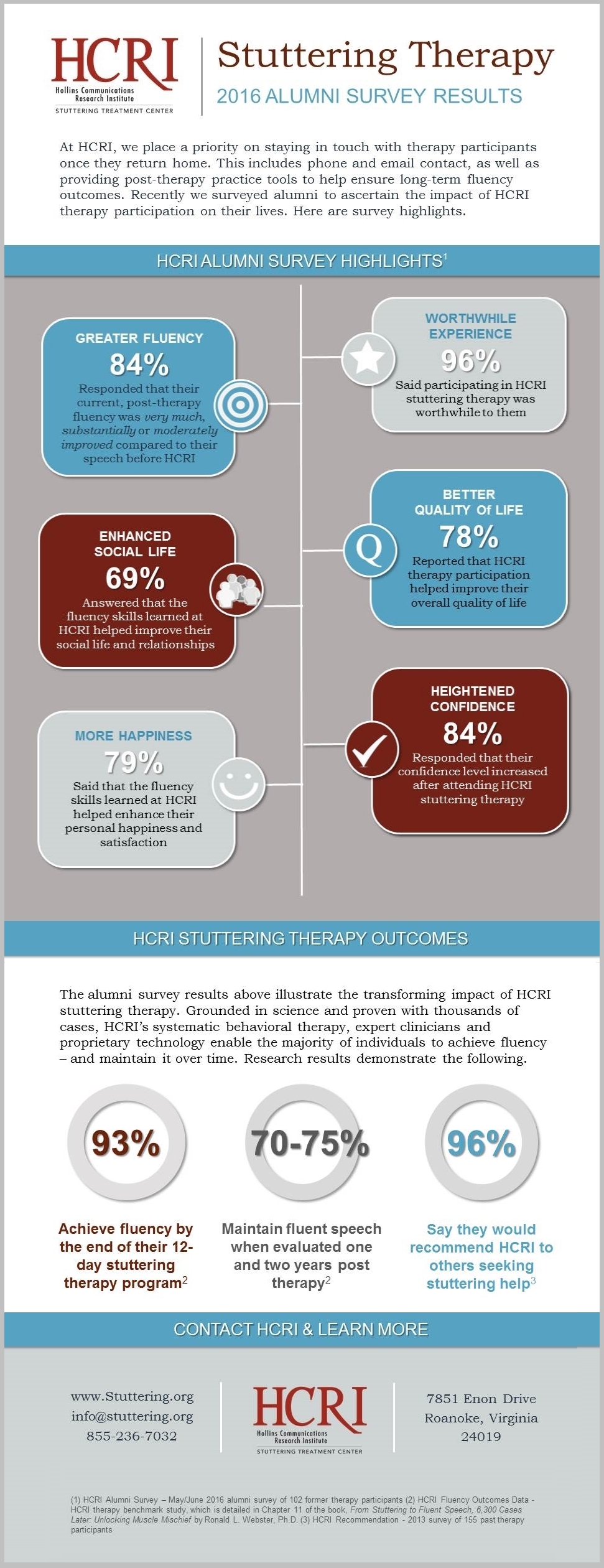We are fortunate to live in this time of tremendous digital convenience with apps and internet services that make our lives easier and more efficient. Online banking, education, stock trading, e-medicine, shopping and more fit our busy lifestyles.
That’s why it is not surprising when we are asked whether HCRI stuttering therapy is available as an online program. The short answer is… No. And, for good reason. In fact, here are eight reasons why coming to HCRI’s national therapy center in Virginia is so important to achieving life-long fluency.
1. 100% Focus on Your Speech. When you come to HCRI, you are away from all the distractions of everyday life. For 12 consecutive days, you immerse yourself in our intensive program and focus on acquiring skills to speak fluently for a lifetime. The richness of the HCRI experience – and the proven fluency results it delivers – simply cannot be replicated through an online program.
2. Intensive, Distinctive Experience. At HCRI, participants benefit from invaluable one-on-one guidance with our expert clinical team. Specially trained clinicians focus on you and your speech needs, and guide you each step of the way on your path to fluency. This individualized, face-to-face approach is essential to therapy success.
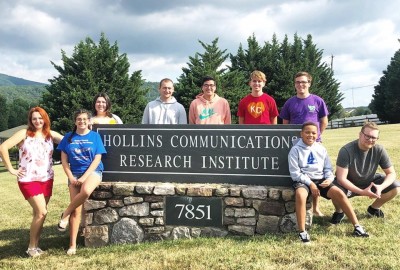
3. Success Begins on Your First Day. HCRI stuttering therapy is a proven, science-based program that has been tested with thousands of stuttering persons from mild to severe. Each step in the stuttering therapy process helps you achieve success benchmarks that you build upon throughout your 12 days.
As each day unfolds, you will develop a growing sense that you command the skills to make fluency happen at will. The unique therapy environment at our nonprofit center, including face-to-face instruction, fluency-training technology, and extraordinary support, is designed to propel your success in achieving lasting fluency.
4. Group Support and Camaraderie. At HCRI, you will participate in therapy with a small group of people who stutter that come from near and far. On your first day, you will quickly feel at home with the other program participants. You’ll interact with these individuals each day and will likely feel a close bond with them by the end of your program. Many life-long friendships are made at HCRI. These special connections cannot be realized through online therapy.
5. Enhanced Confidence and Self-Esteem. HCRI therapy focuses on the physical aspects of speech and teaches participants how to rebuild speech muscles to speak fluently and spontaneously. Our center’s one-of-a-kind behavioral approach to therapy not only delivers strong fluency outcomes; it positively impacts how individuals feel about themselves and their emotions. Through the ability to speak fluently, worry diminishes and is replaced with greater confidence and enjoyment in all types of speaking situations.
6. Access to Proprietary Therapy Technology. Integral to HCRI stuttering therapy is the use of the center’s on-site treatment technology. Developed in-house, HCRI’s therapy technology makes fluency skills easier to learn and more precise. In addition, these tools help participants effectively transfer fluency capabilities learned in the clinical setting to real-world situations.
7. Lifetime of Post-Therapy Support. Once attendees complete their HCRI program, they return home with an unprecedented package of fluency practice tools and clinical support. Clients are encouraged to stay in contact with clinicians via phone and email contact. In addition, post-therapy tools include HCRI’s FluencyNet practice software, an iPhone app, program materials, access to practice groups, refresher programs and more. At HCRI, we are your partner in fluency for life.
8. Consistent, Proven Outcomes. HCRI research demonstrates that 93% of therapy participants acquire fluent speech by the end of their 12-day program. Follow-up studies show 75% retain fluency when evaluated two years later. These fluency outcomes are among the highest documented results of any stuttering therapy available. HCRI results are based on individuals coming to the institute for therapy.
Making the commitment to take 12 days to solely focus on your fluency at HCRI can be one of the best investments of time you will ever make. Through the ability to speak fluently, confidence increases, personal satisfaction grows, and doors of opportunity open.
————
About HCRI
HCRI was founded by Ronald L Webster, Ph.D. in 1972 to investigate stuttering through scientific discovery and treatment innovation. A 501(c)(3) nonprofit organization, HCRI is a leader in stuttering research and scientifically derived therapy. More than 6,500 people from across the U.S. and 50 countries have come to HCRI for stuttering treatment. Clients journalists, students, business professionals, broadcasters, teachers, engineers, doctors, military personnel, police officers, actors, a Supreme Court nominee, and even royalty.
HCRI is located at 7851 Enon Drive, Roanoke, Va. 24019. To learn more, visit www.stuttering.org or contact HCRI at (540) 265-5650 or info@stuttering.org.


.jpg)

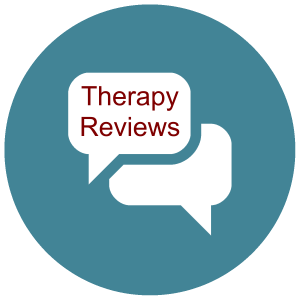


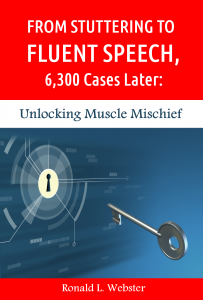
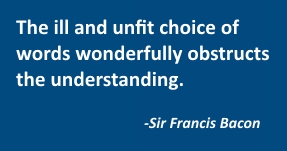 I believe that much of the work that has been done on stuttering also involves major problems with words. I am not referring here to the fact that the stutterer has problems in his or her production of words.
I believe that much of the work that has been done on stuttering also involves major problems with words. I am not referring here to the fact that the stutterer has problems in his or her production of words.